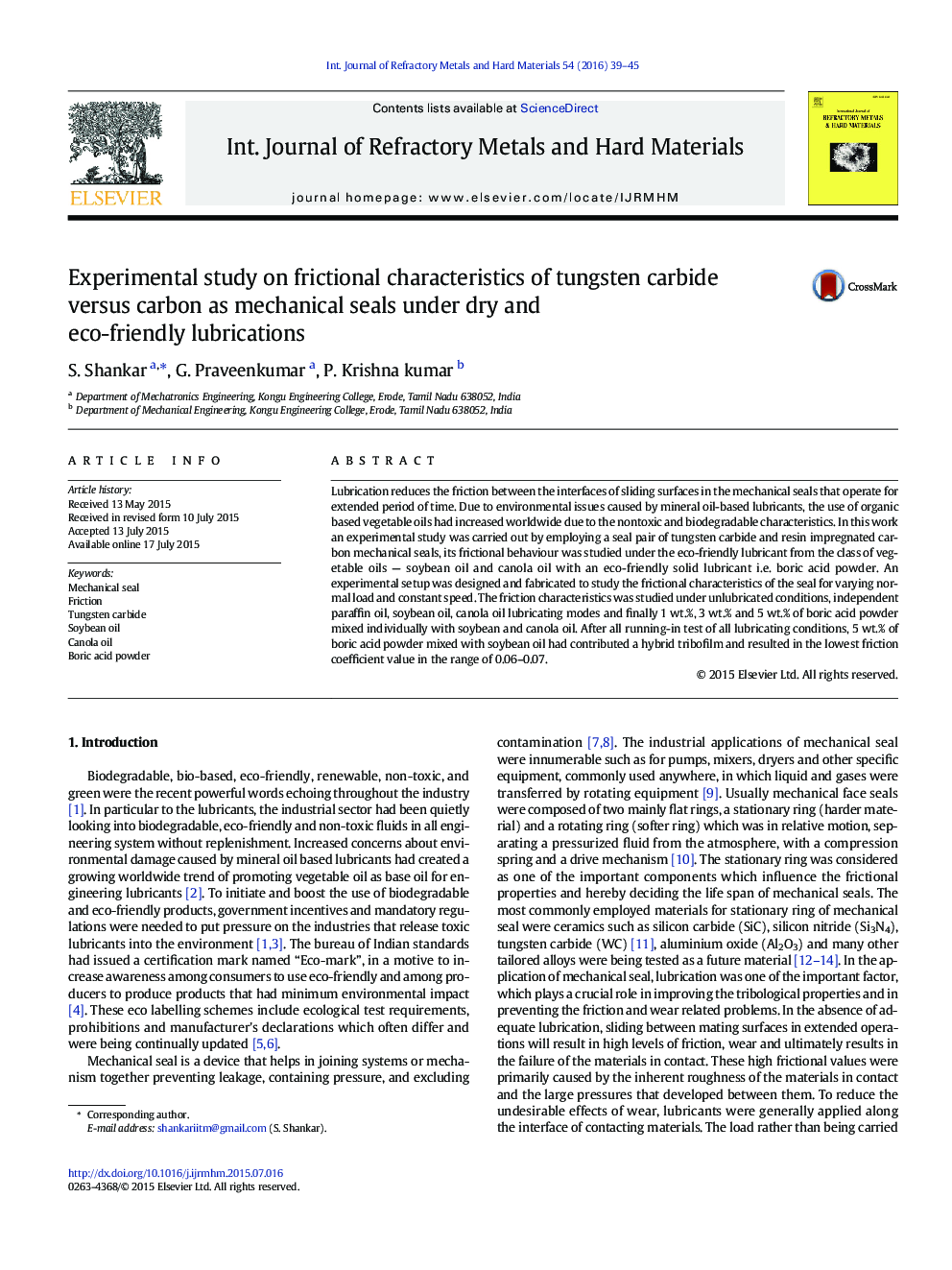| کد مقاله | کد نشریه | سال انتشار | مقاله انگلیسی | نسخه تمام متن |
|---|---|---|---|---|
| 1602836 | 1515965 | 2016 | 7 صفحه PDF | دانلود رایگان |
• Frictional behaviour of tungsten carbide vs carbon mechanical seals was studied.
• Soybean and canola oils with boric acid powder are used as lubricant.
• Friction coefficient, friction torque and face temperature rise were calculated.
Lubrication reduces the friction between the interfaces of sliding surfaces in the mechanical seals that operate for extended period of time. Due to environmental issues caused by mineral oil-based lubricants, the use of organic based vegetable oils had increased worldwide due to the nontoxic and biodegradable characteristics. In this work an experimental study was carried out by employing a seal pair of tungsten carbide and resin impregnated carbon mechanical seals, its frictional behaviour was studied under the eco-friendly lubricant from the class of vegetable oils — soybean oil and canola oil with an eco-friendly solid lubricant i.e. boric acid powder. An experimental setup was designed and fabricated to study the frictional characteristics of the seal for varying normal load and constant speed. The friction characteristics was studied under unlubricated conditions, independent paraffin oil, soybean oil, canola oil lubricating modes and finally 1 wt.%, 3 wt.% and 5 wt.% of boric acid powder mixed individually with soybean and canola oil. After all running-in test of all lubricating conditions, 5 wt.% of boric acid powder mixed with soybean oil had contributed a hybrid tribofilm and resulted in the lowest friction coefficient value in the range of 0.06–0.07.
Journal: International Journal of Refractory Metals and Hard Materials - Volume 54, January 2016, Pages 39–45
